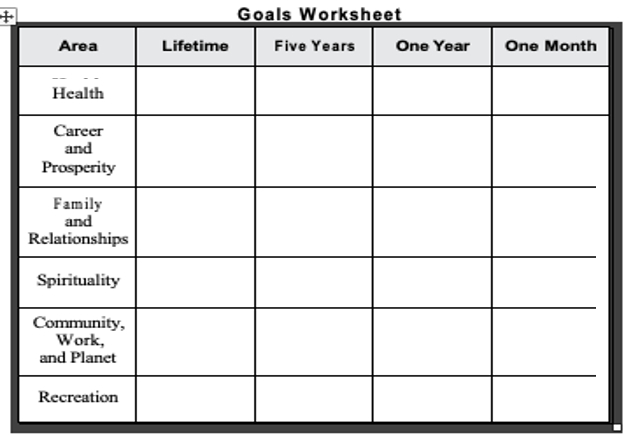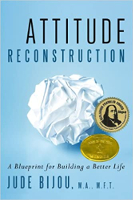
Image by Moni Mckein
Do you wonder “Why am I here?” ”Why do I feel so empty?” Does it feel like nothing will bring you joy, love, and peace? Do you feel lost and unanchored? Does it seem like something is missing? Do you envy others who seem to have life wired?
If you answer “yes” to any of these questions, what you are lacking is a sense of purpose. You flit from new thing to new thing, desperately trying to find meaning in the actions you take, but you don’t get much satisfaction.
Don’t confuse your life purpose with material goals, such as finding a spouse, being a mother, earning a lot of money, or becoming famous. Your purpose is something separate from your goals.
Your purpose is the attitude you take as you live your life. Remember what you are seeking is within you. In contrast, your goals are what you’d like to materially achieve during this time you are on the planet.
How to Find Your Purpose
You can determine your purpose by reflecting on the following questions for a few minutes daily and writing down your answers.
Why am I here?
Where am I going?
What is my purpose?
What do I truly want to say I did when I’m on my deathbed?
What is truly important to me?
Suspend your judgments about what you write down. If you keep asking these questions on a regular basis, some satisfying answer will emerge. Look at your written musings and repeat out loud what feels closest to your truth. Futz with the wording.
If you keep contemplating any or all of these questions, at some point your answer will get stronger and feel sweeter. If this isn’t your experience, go back and ask yourself the above questions some more. Be patient and persist in your inquiry.
When you find it, remind yourself of it frequently. Repeat it daily several times, until it becomes infused in every cell. Some examples are:
I’m here to be happy.
I’m here to embody joy, love, and peace.
I’m here to be loving.
I want to contribute to making the planet more peaceful.
I want to make the world a better place.
When you find your purpose, it will become your beacon. It can keep you on track in moments of doubt or when you forget what is fundamentally true for you.
Articulating your purpose will help you prioritize what’s important from what’s trivial. More importantly, as you align your thoughts, words, and actions with your personal purpose you’ll finally feel content. You will be living the reason you are alive today, tomorrow, and until you take your last breath.
Connecting with your purpose will put whatever happens into its proper perspective. You will know what is important and won’t get mired in the inevitable obstacles along the way. Articulating it will provide a touchstone to help make moment-to-moment choices every day.
Setting Goals
Once you have a clear idea of your purpose, you will be able to translate it into practice through your actions. If you feel unmotivated or complacent, it’s because you have overlooked the attitude that you need to hold on to as you do what you do. These actions run the gamut from making your bed in the morning to helping your co-worker when they need a little boost, from being nice to folks that rub you the wrong way, to organizing a blood drive. Each activity should exemplify your purpose.
Some people avoid setting goals because they are afraid that they will fail. Others neglect some aspects of their lives because they seem too difficult, take up too much time, or don’t seem important.
Sooner or later, there is a price to pay for neglecting the responsibilities that come from living on the planet and in your community. To keep a check on the choices you make on a daily basis, I recommend filling out the Goals worksheet that follows. You don’t have to fill out every box.
I suggest you take half an hour and work rapidly. Start by writing down your lifetime goals in each of the following areas: health, career and prosperity, family and relationships, spirituality, community and the planet, and recreation. If you are baffled, skip that area for now. You can always come back and create or refine your answers.

Click on the Worksheet for a full-size printable version.
After you are finished with the lifetime column, break that broad goal into what you can reasonably accomplish in five years. Or, if that seems too difficult, determine what you can do in the next year towards your long-range goal. Then break your large goals into what you can do in the next month.
If this task seems overwhelming to do on your own, enlist a friend to do theirs at the same time. After you have sketched out your goals, you’ll need to be sure that while you do things that might seem hard, you maintain an attitude that reflects your purpose.
Set aside time to review your goals regularly, like the first of each month or yearly on your birthday, because they may change over time. It’s essential to remember why you are doing a given activity. It’s helpful to remind yourself of something along the lines of “I’m doing this for me. I can do this. I’m responsible for my life.”
With a pulse on your purpose, and guidance from your goals, you will be able to make daily choices that will improve your sense of personal satisfaction and boost your confidence. You’ll find more joy in your life as you take charge of your destiny.
©2024 by Jude Bijou, M.A., M.F.T.
All Rights Reserved.
Book by this Author: Attitude Reconstruction
Attitude Reconstruction: A Blueprint for Building a Better Life
by Jude Bijou, M.A., M.F.T.
 With practical tools and real-life examples, this book can help you stop settling for sadness, anger, and fear, and infuse your life with joy, love, and peace. Jude Bijou's comprehensive blueprint will teach you to: ? cope with family members' unsolicited advice, cure indecision with your intuition, deal with fear by expressing it physically, create closeness by truly talking and listening, improve your social life, increase staff morale in just five minutes a day, handle sarcasm by visualizing it flying by, carve out more time for yourself by clarifying your priorities, ask for a raise and get it, stop fighting via two easy steps, cure kids' tantrums constructively. You can integrate Attitude Reconstruction into your daily routine, regardless of your spiritual path, cultural background, age, or education.
With practical tools and real-life examples, this book can help you stop settling for sadness, anger, and fear, and infuse your life with joy, love, and peace. Jude Bijou's comprehensive blueprint will teach you to: ? cope with family members' unsolicited advice, cure indecision with your intuition, deal with fear by expressing it physically, create closeness by truly talking and listening, improve your social life, increase staff morale in just five minutes a day, handle sarcasm by visualizing it flying by, carve out more time for yourself by clarifying your priorities, ask for a raise and get it, stop fighting via two easy steps, cure kids' tantrums constructively. You can integrate Attitude Reconstruction into your daily routine, regardless of your spiritual path, cultural background, age, or education.
For more info and/or to order this book, click here. Also available as a Kindle edition.
About the Author

Jude Bijou is a licensed marriage and family therapist (MFT), an educator in Santa Barbara, California and the author of Attitude Reconstruction: A Blueprint for Building a Better Life.
In 1982, Jude launched a private psychotherapy practice and started working with individuals, couples, and groups. She also began teaching communication courses through Santa Barbara City College Adult Education.
Visit her website at AttitudeReconstruction.com/






























